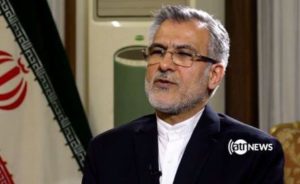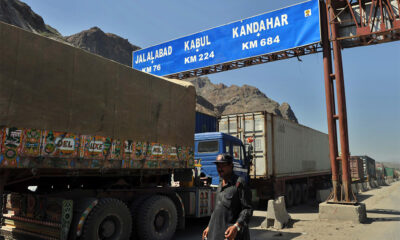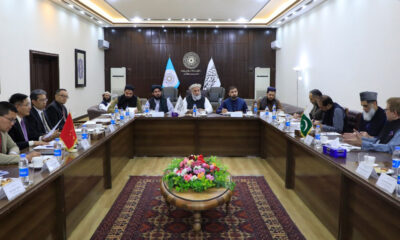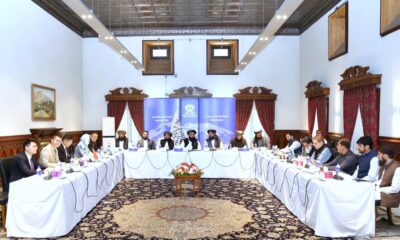Latest News
Iran has Contacts not Links With Taliban: Envoy
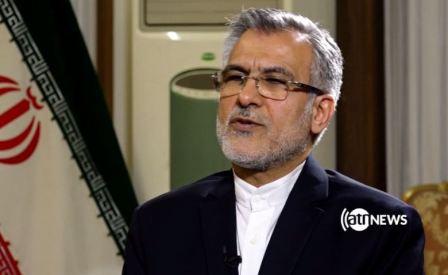
Amid reports of Tehran’s involvement in deteriorating security in western Farah province of Afghanistan, the Iran ambassador in Kabul says his country has no links with the Taliban but have contacts to bring the group to the negotiation table.
Speaking in a special interview with Ariana News on Saturday, the Iranian envoy Mohammad Reza Bahrami said that Iran’s contacts with the Taliban aim to help and support the Afghanistan peace and reconciliation process.
“We have contacts not relations [with the Taliban],” Bahrami said. “It is in our interest to be a contributor in talks between the government of Afghanistan and opposition groups.”
Bahrami, meanwhile, said that his country has not been involved behind the Taliban’s recent attacks in the provincial capital of western Farah province – bordering with Iran- that left scores killed and injured. He said any kind of debates in this regard will concern and harm public opinion.
“Personally I don’t accept the concept. This impression is not real and will create concerns to public. This impression and mentality is not documented,” he said.
Referring to Iran’s role in recruiting Afghan nationals to fight in Syria as part of the Islamic Revolutionary Guards Corps (IRGC), the Iranian envoy said that the Afghans are voluntarily taking part in Syrian war in a bid to defend the holy places in the country.
“We have not encouraged or guided them, it has been based on their will. We are in Syria based on the request of Syrian government,” Bahrami said. “We have had advisory role there and we are doing this with the agreement of Syrian government.”
The official, meanwhile expressed hope that the Afghan security forces earn that capability to defend their country without the support of international forces.
By Shakib Mahmud & Diana Samadi
Latest News
IEA Supreme Leader reminds intelligence agency of its obligation to protect Islamic system
Akhundzada emphasized that the intelligence agency must neutralize any plots designed to undermine the Islamic government.
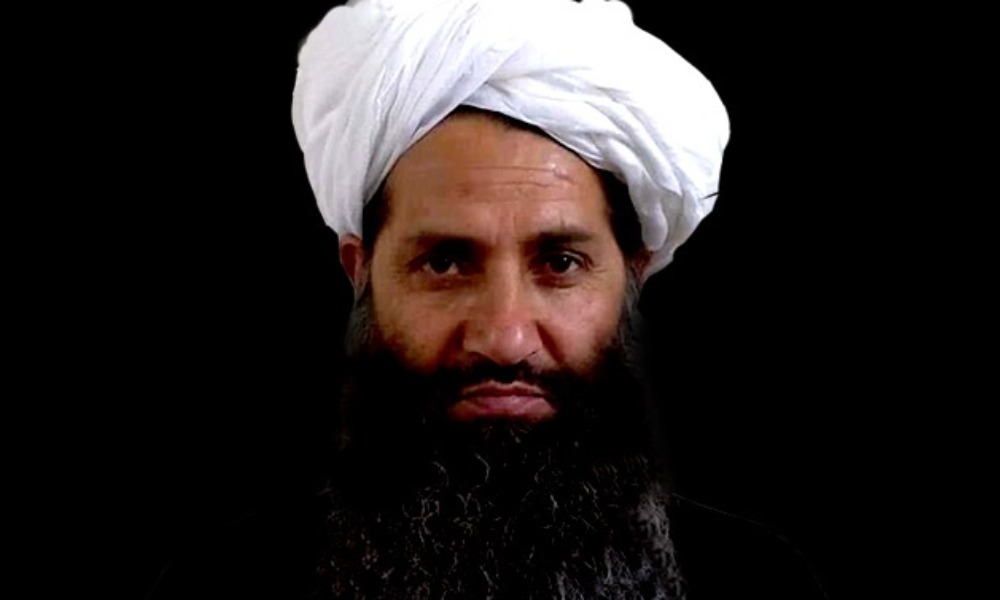
The Supreme Leader of the Islamic Emirate, Sheikh Hibatullah Akhundzada, has stated that Afghanistan’s General Directorate of Intelligence (GDI) is obligated to dismantle all covert and overt plans orchestrated by enemies of the Islamic system.
Speaking at a one-day seminar for intelligence officials, Akhundzada emphasized that the Islamic Emirate’s intelligence agency must neutralize any plots — whether visible or concealed — designed to undermine the Islamic government.
He described the intelligence apparatus as the backbone of the administration and stressed that no one should be allowed to insult Islamic values and religious principles, either openly or covertly.
The Supreme Leader further directed intelligence officials to work in coordination with other government departments to enforce Sharia law and promote religious awareness among the public.
He also instructed intelligence personnel to treat citizens respectfully, refrain from making arrests based on suspicion or without evidence, avoid mistreatment of detainees, and ensure the protection of confidential information.
Latest News
China invites Afghanistan’s foreign minister to visit Beijing
China’s Special Representative for Afghanistan met with Amir Khan Muttaqi to discuss expanding trade ties between the two nations
Latest News
Afghanistan, Pakistan, China meet over expanding trade ties
Key topics on the agenda included the establishment of joint industrial parks in Afghanistan and the development of shared export processing centers

Senior officials from Afghanistan, Pakistan and China came together in Kabul to discuss the strengthening and expansion of trade relations between thethree nations.
The meeting was attended by Nooruddin Azizi, Acting Minister of Commerce and Industry of Afghanistan; Mohammad Sadiq, Special Representative of Pakistan; and Yue Xiaoyong, Special Representative of China.
Key topics on the agenda included the establishment of joint industrial parks in Afghanistan, the creation of special economic zones, and the development of shared export processing centers.
The three parties also explored the possibility of organizing trilateral trade exhibitions and setting up support centers for small and medium-sized enterprises (SMEs) in Afghanistan.
Officials noted that the facilitation of banking relations between the three countries was a fundamental requirement for enhancing economic cooperation.
The Afghan Ministry of Commerce and Industry stated that the meeting reflected the strong commitment of the participating countries to deepening regional trade and economic collaboration, expressing hope that the outcomes will yield positive benefits for all parties involved.
-

 Regional4 days ago
Regional4 days agoAt least 26 civilians killed in Indian strikes on Pakistan: Islamabad
-
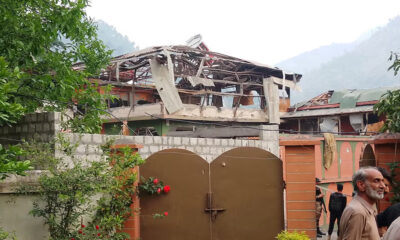
 Regional5 days ago
Regional5 days agoIndia strikes Pakistan over Kashmir tourist killings
-

 Science & Technology4 days ago
Science & Technology4 days agoSkype ends operations after 22 years of service
-

 Latest News4 days ago
Latest News4 days agoIslamic Emirate of Afghanistan ‘concerned’ over rising tensions between Pakistan and India
-
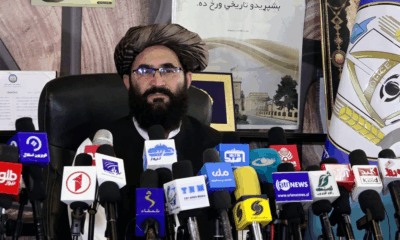
 Latest News4 days ago
Latest News4 days agoPassport Directorate earns nearly 13 billion AFN in one year
-

 World4 days ago
World4 days agoMacron to meet Syrian president on Wednesday, expected to discuss security
-
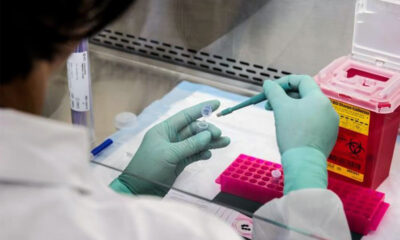
 Health4 days ago
Health4 days agoWHO confirms second Polio case in Afghanistan
-

 Regional4 days ago
Regional4 days agoIndia dismisses report of Pakistan downing jets as “disinformation”

